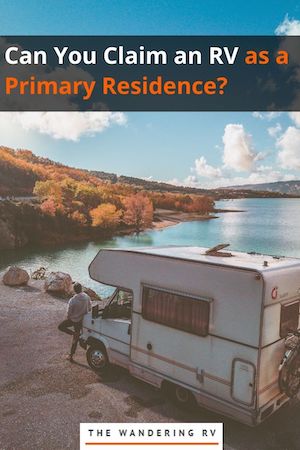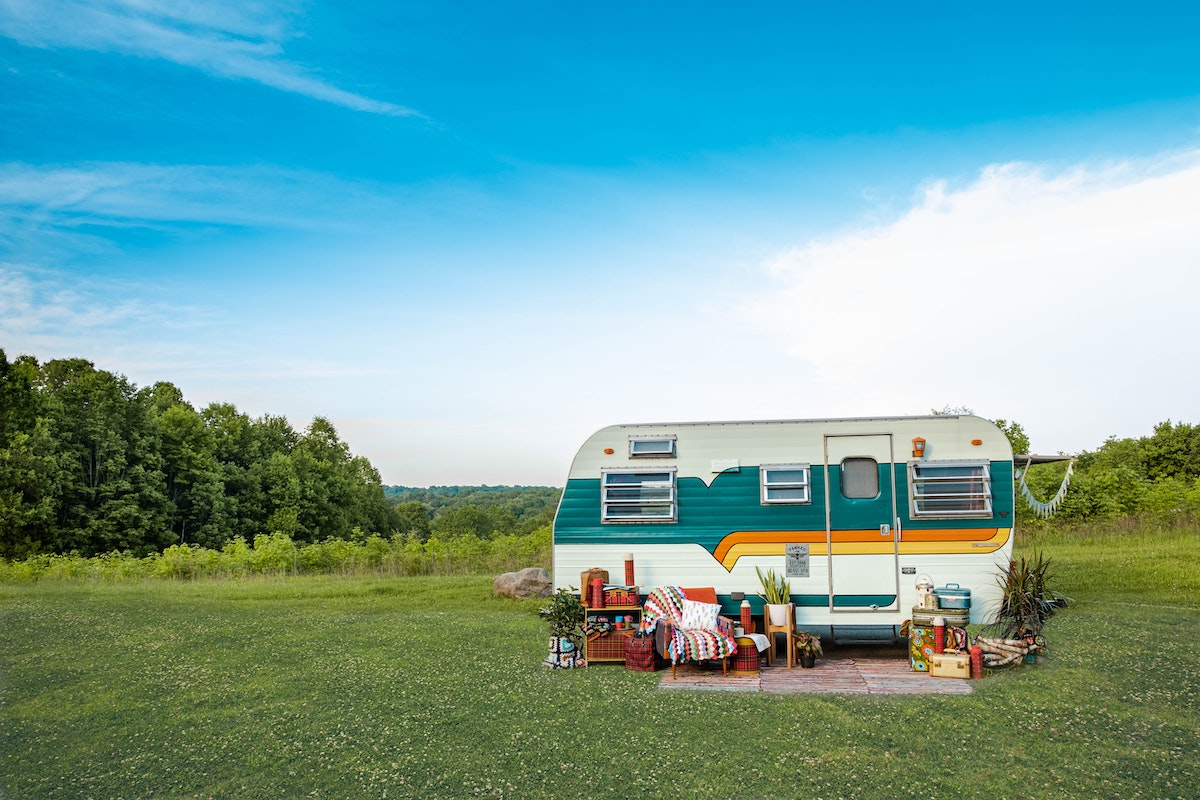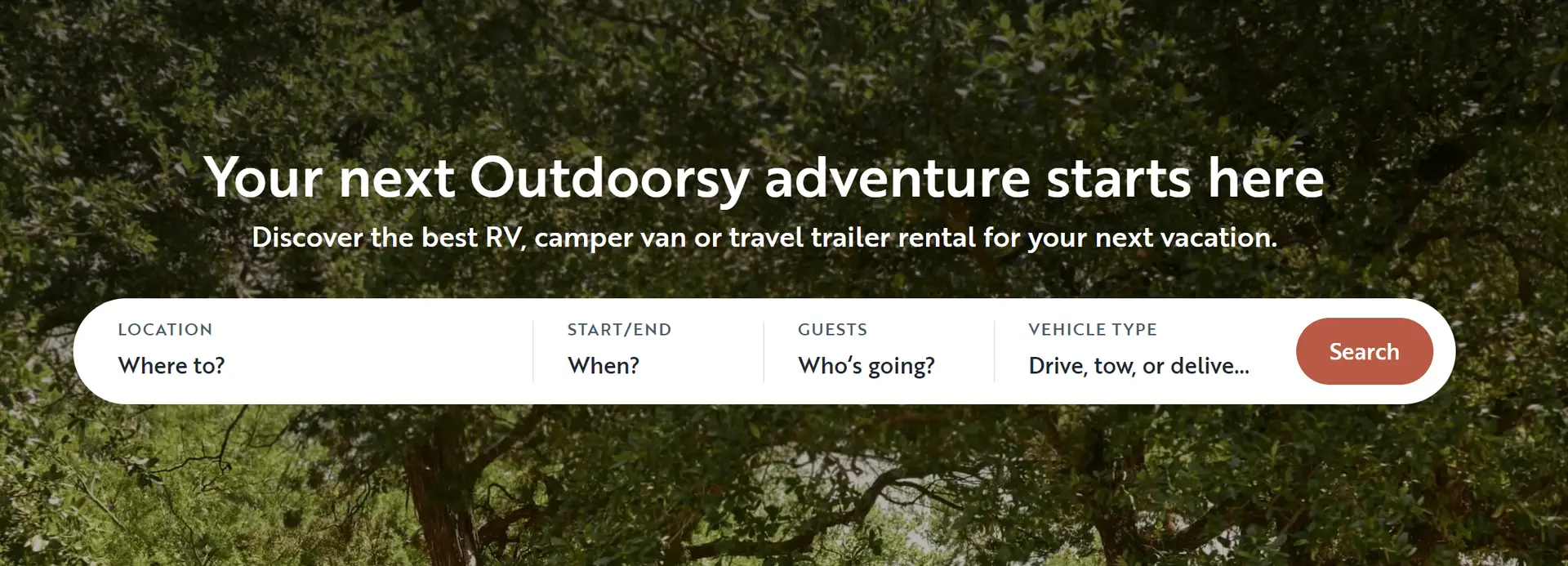
Can you can claim an RV as a primary residence?
Yes, you can, but there’s more you should know before you to it!
In this guide, we discuss whether you can claim your recreational vehicle as your primary residence, the tax benefits of doing so, the loopholes you may have to go through, and more!
So make sure you read all the way through to figure out what you need to know about the legalities of this decision!
Let’s dive in with the most important question…
Table of Contents
- Can I Claim An RV As My Primary Residence?
- Are RVs Tax Deductible?
- Conclusion: Is Financing Your RV as a Home Worth it?
Can I Claim An RV As My Primary Residence?
Yes! You’re able to claim your RV as a primary residence.
The IRS (International Revenue Service) is pretty broad about what qualifies as a home. The term “home” can encompass:
- Houses
- Condominiums
- Cooperatives
- Mobile Homes
- RVs
- Boats
- House Trailers
Your property must meet the following criteria to be considered a primary residence:
- Designated sleeping areas
- Designated cooking area
- Bathroom facilities
So you can do it… but should you?
There are plenty of benefits to claiming your RV as your primary residence, all of which we’re going to get into in the next few paragraphs.
Why Bother Claiming Your RV As Your Home?
One of the main benefits of claiming your RV as your primary residence is the homeowner tax deductions that can decrease your overall tax bill.
However, it’s only possible to decrease your tax bill if two criteria are met:
- You meet the requirements to be able to write your RV off on your taxes (see highlighted box below)
- Your itemized deductions add up to more than your standard deduction (see below)
Note: While you can take a loan out on an RV and claim it as your primary residence, to do so, your RV must be considered collateral against the loan. Meaning, if you don’t pay it back, the lender can reclaim the RV in order to make up the money from your loan. If you purchase your RV with a credit card or an unsecured loan, you will NOT be able to write off the taxes on your RV.
As for itemized deductions, let’s look at an example to better explain this concept. For a single person with no children, the standard tax deductions equal $12,000 (as of this writing).
Let’s say you buy a camper for $50,000. You put down a 20% down payment of $10,000 and finance the remaining balance of $40,000 using your new RV as security. For simplicities sake, let’s say you bought the rig on January 1st with an interest rate of 10%.
That would make your financing a 10-year loan with 120 equal payments of $528.60 a month.
|
Payment Date |
Payment |
Principal |
Interest |
Total Interest |
Total Balance |
|---|---|---|---|---|---|
|
Jan 2021 |
$528.60 |
$195.27 |
$333.33 |
$333.33 |
$39,804.73 |
|
Feb 2021 |
$528.60 |
$196.90 |
$331.71 |
$665.04 |
$39,607.83 |
|
Mar 2021 |
$528.60 |
$198.54 |
$330.07 |
$995.10 |
$39,409.30 |
|
Apr 2021 |
$528.60 |
$200.19 |
$328.41 |
$1,323.52 |
$39,209.10 |
|
May 2021 |
$528.60 |
$201.86 |
$326.74 |
$1,650.26 |
$39,007.24 |
|
Jun 2021 |
$528.60 |
$203.54 |
$325.06 |
$1,975.32 |
$38,803.70 |
|
Jul 2021 |
$528.60 |
$205.24 |
$323.36 |
$2,298.68 |
$38,598.46 |
|
Aug 2021 |
$528.60 |
$206.95 |
$321.65 |
$2,620.34 |
$38,391.51 |
|
Sep 2021 |
$528.60 |
$208.67 |
$319.93 |
$2,940.27 |
$38,182.84 |
|
Oct 2021 |
$528.60 |
$210.41 |
$318.19 |
$3,258.46 |
$37,972.43 |
|
Nov 2021 |
$528.60 |
$212.17 |
$316.44 |
$3,574.89 |
$37,760.26 |
|
Dec 2021 |
$528.60 |
$213.93 |
$314.67 |
$3,889.56 |
$37,546.33 |
That would mean you’re paying $3,889 in interest throughout the entire year.
Unless you can add $8,110 in itemized deductions to equal or surpass the $12,000 standard deduction, it is NOT worth itemizing the deductions on your RV!
How To Declare Your RV As Your Main Home
So how do you go about claiming or financing an RV as a primary residence?
In order to claim your RV, all you have to do is tell the lender you’re getting financing from that you want the RV to be your primary residence and they’ll add it into the paperwork.
According to the IRS, legal tax-paying citizens can only claim one place as their primary residence at any given time.
Some cities (or states in general) may not allow you to declare your RV as your main home—in which case, there’s a nice loophole you can jump through. Labeling your RV as an ADU (accessory dwelling unit) would be your next best option.
An AUD is known as a secondary housing structure on a primary lot (that is typically used to be rented out). With that said, however, know that not all cities will allow your RV to be an AUD. San Diego does not allow anything with wheels to be an AUD, for example.
To figure out if your mobile home could qualify as an AUD, check out this article.
Don’t feel like you’re trapped having your RV as your primary residence! In the event that you want to move back to a more “traditional” home, your RV can be treated as your second home (and the same homeowner deductions would apply).
State Residency: What, Why & How
So, you know you can claim your RV as your primary residence now, but which states allow you to do so?
Each state has different laws regarding what qualifications your property has to meet before it’s legally recognized as a primary residence.
We can sum this up in two words: domiciliary and residency.
Domiciliary
A domiciliary is a person who claims a location in a particular state as their primary permanent legal location of residence.
Each state has different guidelines as to what it means to be recognized as a domiciliary – you can typically find out what criteria you must meet in a local courthouse or licensing department in whichever state you choose.
Resident

A resident lives within the boundaries of a state while meeting the specific guidelines outlined by said state (in order to receive the full benefits of being a resident).
With that said, you’re also subject to any and all tax laws in the state you decide to become a resident in. We highly recommend reviewing the tax laws in your state before claiming residency so nothing unexpected pops up!
Check out your state tax laws here!
While each state tends to have different rules regarding residency and what they will and won’t classify as a primary residence, most of the laws are fairly similar across state lines. Some common laws include:
- Registered state vehicles including all recreational vehicles
- Have a valid driver’s license from the state
- Must be gainfully employed in the state
- Resided in the state for at least 30 days
- The intention of making the state your permanent and legal place of residence
- When not present in the state there is still an intention to return
One of the best things about this is that any property (or vehicle) can be considered as your primary residence as long as it has a sleeping area as well as cooking and toilet facilities (assuming your state laws allow it).
Another thing to keep in mind is that RVs typically cost less over an extended amount of time when compared to a typical mortgage loan.
How to Claim Your RV As Your Primary Residence
In order to claim your RV, all you have to do is tell the lender you’re getting financing from that you want the RV to be your primary residence and they’ll work it into the paperwork.
The IRS only allows taxpayers to claim one primary home at a time. This home must be your primary residence (where you live most of the time year-round). With that said, the home you claim doesn’t have to have a stationary location—as long as it checks the boxes from above, you’re free to bring it wherever you’d like (for the most part)!
Note: Once you convert your RV into a primary residence legally, you’ll be subject to paying the high-priced mortgage escrow fees that are often associated with first position liens on principal dwellings!
This can lead you to believe that making your RV your main home was a poor choice, but over time you’ll see that RVs cost less than the typical mortgage.
Getting RV Insurance for Your Dwelling
Like car insurance, RV insurance is required in every state. All states require a minimum amount of liability insurance. The amount of RV insurance you need depends on a few things, such as:
- The state you live in
- The type of recreational vehicle you have
- Where you will be traveling (across state lines, etc)
- Whether you’re using it full- or part-time
- Whether there are custom features on your RV (these can result in higher repair costs)
We wrote an in-depth guide to the best RV insurance companies that shares the types of RV insurance, when you need it and when you don’t, how much RV insurance you need, and more!
Typically, RV insurance costs around $1,000 to $2,000 per year for full-timers.
Are RVs Tax Deductible?
They are!
As we’ve said before, your RV has to have a toilet and sleeping and cooking facilities in order to qualify. However, the vehicle used to tow a fifth wheeler or travel trailer will not qualify.
It’s also important to keep in mind that the interest is only deductible if you take out a secured loan on your RV. It has to be explicitly tied to the asset (your RV, in this case) which allows the lending bank to repossess the RV if you default.
If you take out an unsecured personal loan to cover the cost of your RV, the interest will not be tax-deductible and the rates can be much higher since the bank has zero collateral.
You may also be eligible for a motorhome sales tax deduction (you can find out more about that here). Keep in mind that you will not be able to qualify for a sales tax deduction in states that don’t assess sales tax, including:
- Delaware
- Alaska
- Montana
- Oregon
- New Hampshire
You can find a full chart on sales tax deduction and more here.
Conclusion: Is Financing Your RV as a Home Worth it?
Simply put, it can be worth it if you are able to pay more in itemized deductions that your standard deduction amount ($12,000 for someone single with no kids).
You must abide by all state and local regulations surrounding what can and can’t be classified as a primary residence. You’ll have to do a bit of research on your end to see if your state allows your RV to be considered as the main home
Alternatively, can opt for your RV to be an AUD, or second home, if your state doesn’t allow RVs to be main homes.
If your state allows you to live in an RV full time while claiming it as your primary residence, and you plan on living in your RV for the foreseeable future, then yes! It’s well worth it (and the tax deduction is nice, too).
Need to know more? Use the comment box down below to ask us any questions you may have, or share your personal experience with us!
Read Next:




